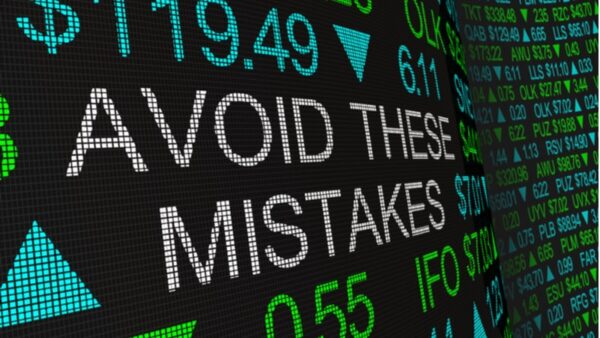Trading appears to be a simple process. After all, a price can only go up or down, so you have to choose the appropriate way and sit back and wait for the cash to come in, right? That’s not entirely true. The trading world can be full of shocks for people with huge intentions but little preparation. When you’re underprepared, you won’t realize that trading mistakes are part of the learning process and can help you become a better trader. You should be aware of mistakes to avoid while trading.
- Investing without a trading strategy
Do you have a trading strategy in place? If you don’t have one, now is the time to get one, and the most excellent place to start is by considering why you’re trading. Consider what you want to get out of trading and then figure out how to acquire it. Consider how much time you can devote to trading, the types of transactions you want to make (e.g., high volume, low profit), and whether your current level of knowledge is sufficient or you need to spend time learning.
- Making too many trades, too soon
As trading has the potential to make money, the temptation, especially for beginning traders, is to push limits to make more money faster. However, entering trades with too much zeal – whether in terms of volume or value – only helps to increase your risk. If you overextend yourself and things go wrong, you may bounce out of the market before you’ve ever gotten a chance to settle in. Too many people enter the trading markets with the expectation of quickly becoming millionaires.
- Trading based on emotions
We’ve all had the sensation of being on a great run and feeling like you can’t go wrong. It usually happens when you have a string of profitable trades and feel like you’ve perfected it when it comes to trading. But all good runs come to an end, and it’s important to remember this because, in the end, it’s your money on the line.
Know about different trading platforms
A trading platform is a program that allows investors and traders to place deals and track accounts through financial intermediaries. Other services, including real-time quotations, charting tools, news feeds, and even premium analysis, are included in trading platforms. Services can also target specific markets, such as equities, currencies, options, or futures.
Commercial websites and prop platforms are the two types of trading platforms. As the name implies, day traders and individual investors focus on commercial websites. These stand out for their ease of use and valuable features for investor education and research, such as news feeds and maps. It is essential to be aware of what trading platforms are. On the other hand, Prop platforms are bespoke platforms designed by enormous brokerages to meet their unique needs and trading style. Traders employ a variety of trading platforms based on their trading style and volume.

